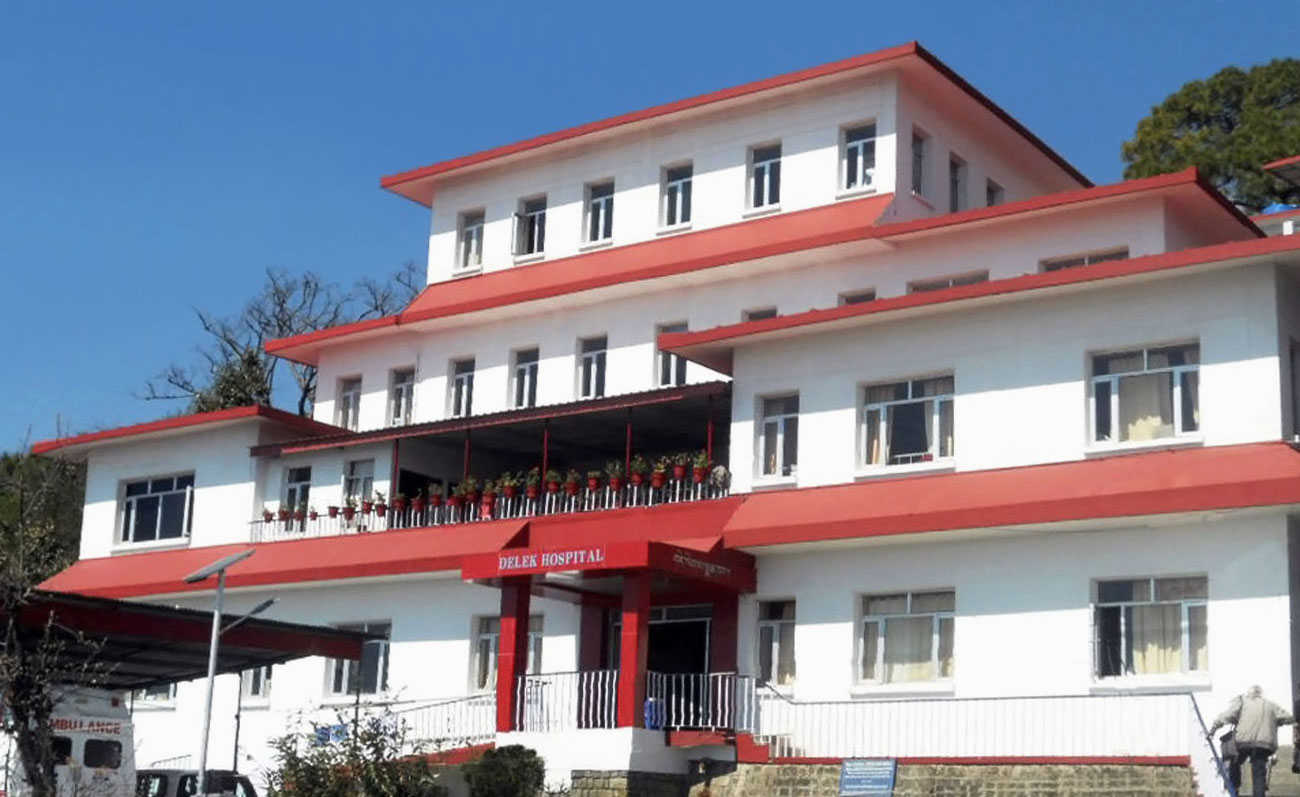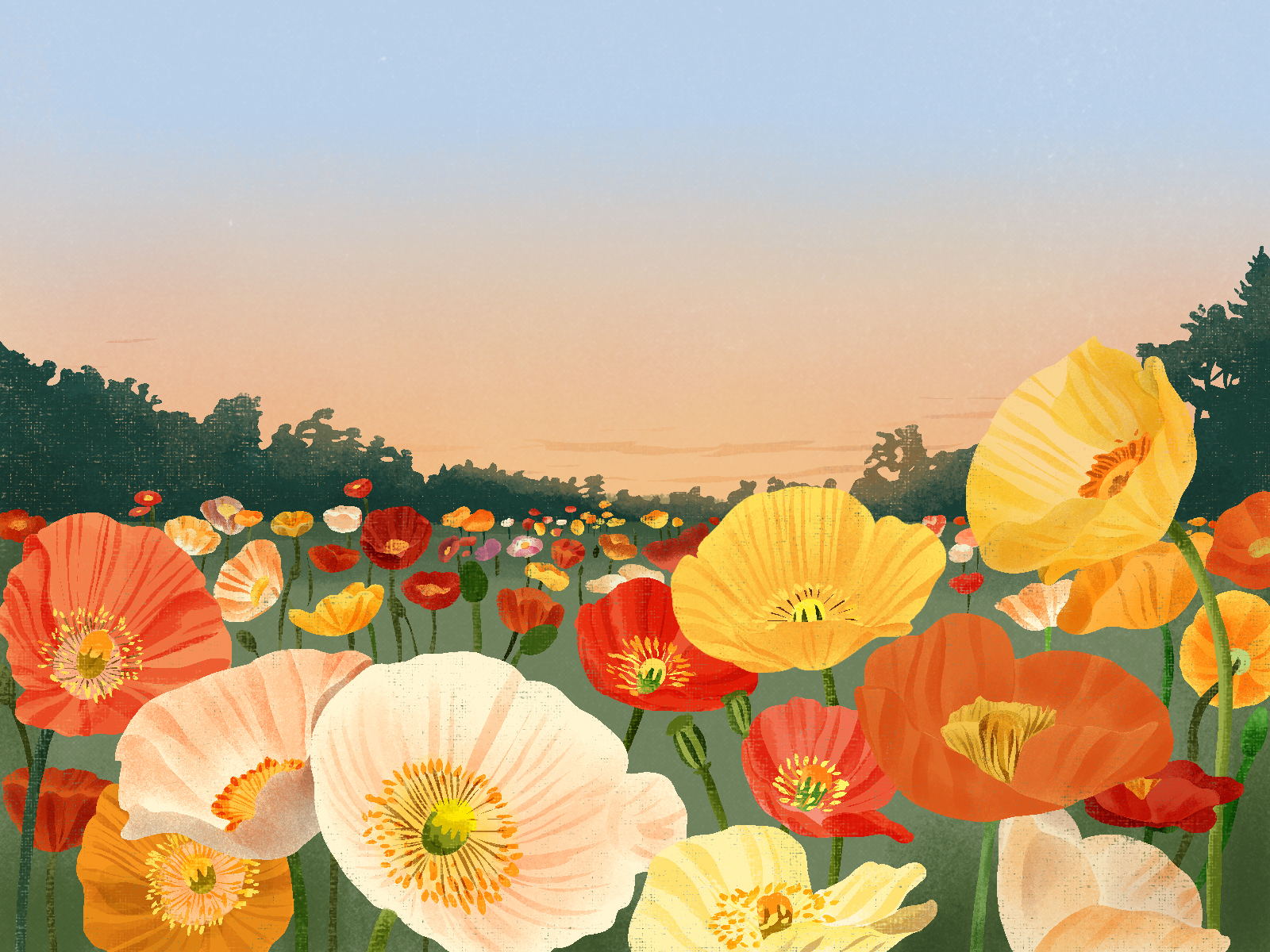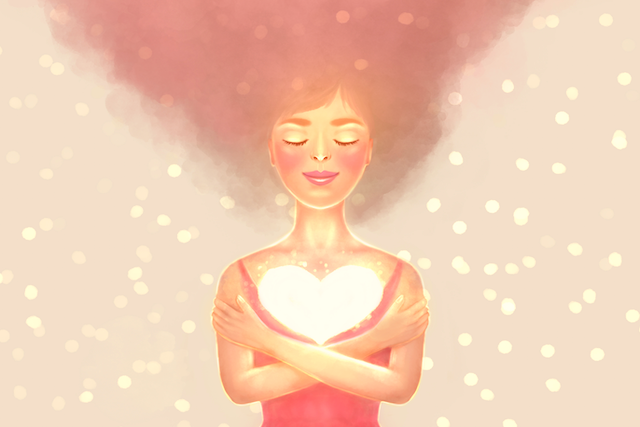Buddha Buzz Weekly: Tibetans Caught in India’s Second Wave of COVID-19
Tibetan residents in India face vaccine shortages amid rising cases, an upcoming talk addresses Black Buddhism in the US, and Tricycle contributor Charles Johnson is featured in a cartoon anthology. Tricycle looks back at the events of this week...

Trike Daily Buddha BuzzNews
Tibetan residents in India face vaccine shortages amid rising cases, an upcoming talk addresses Black Buddhism in the US, and Tricycle contributor Charles Johnson is featured in a cartoon anthology. Tricycle looks back at the events of this week in the Buddhist world.
By Amanda Lim Patton and Emily DeMaioNewtonMay 08, 2021 Delek Hospital in Dharamsala, India | https://tricy.cl/3euFrcu
Delek Hospital in Dharamsala, India | https://tricy.cl/3euFrcuNothing is permanent, so everything is precious. Here’s a selection of some happenings—fleeting or otherwise—in the Buddhist world this week.
Tibetans Caught in India’s Outbreak of COVID-19 Cases
Tibetan residents in India are caught among the rising numbers of cases as India battles an unrelenting outbreak of COVID-19 infections. On Thursday, the Indian health ministry recorded 410,000 cases in 24 hours, a new global record, with experts suspecting the actual number of infections to be much higher, the New York Times reports. The number of cases is rapidly climbing in Dharamsala, home of the Tibetan government in exile, with nearly 140 Tibetans testing positive since last week. In response to the outbreak, the Central Tibetan Administration issued an urgent appeal to Tibetan communities worldwide to donate to India’s COVID-19 relief measures. According to Radio Free Asia, a shortage of vaccines at Delek Hospital, the largest Tibetan hospital in India, has halted the campaign to vaccinate Tibetans age 18 and older in Dharamsala. Dr. Tenzin Tsundue told RFA that Tibetans should not wait for Delek Hospital to receive more doses: “I urge Tibetans to get vaccinated in government hospitals now if they get the chance.” Further south in Dehradun, capital of the northern state of Uttarakhand, 225 Tibetans have tested positive, including 83 monks from the local Sakya monastery.
Upcoming Talk Addresses the Emergence of Black Buddhism in the US
A new talk from Buddhist Currents, an ongoing series of conversations focused on critical contemporary issues in Buddhist thought and practice, will illuminate the emergence of Black Buddhism in the US. Led by Dr. Rima Vesely-Flad, the director of Peace and Justice Studies at Warren Wilson College, the talk will explore how the field of Buddhism and Psychology is expanding to recognize intergenerational trauma resulting from slavery, Black Buddhist practices, and the reclaiming of Black embodiedness. The free event will be held on Zoom on May 20 at 5 p.m. PT (8 p.m. ET).
72-year-old Tricycle Contributor Charles Johnson’s Career Continues to Thrive
Last year during a Tricycle Talks episode, Tricycle’s editor-in-chief James Shaheen asked writer and cartoonist Charles Johnson if he ever sleeps. Apparently the answer is “no.” A Tricycle contributor, Johnson is also a professor of creative writing, the author of 25 books—one of which won the 1990 National Book Award for Fiction, and a 1998 MacArthur fellow. This spring, Johnson’s cartoons will be featured in the anthology It’s Life as I See It: Black Cartoonists in Chicago 1940-1980, which will be published by New York Review Comics on June 1. In a Hawaii Review of Books featured interview between Johnson and Thuy Da Lam about his recent book of nonfiction, Grand: A Grandparent’s Wisdom for Happy Life, he said:
From my early life forward, it has always been a challenge for me to bring together all the things in my life that I love, partly because there are so many things that I love—drawing, writing, family, philosophy, martial arts, Sanskrit study, a passion for the sciences (and science fiction), chess, comic art, and Buddhism. But I think what I’ve realized in 72 years is that all these things are connected and overlap, if one approaches them creatively, as I’ve tried to do.
Leaders of Many Buddhist Traditions Come Together for a Healing Ceremony Amidst National Anti-Asian Violence
On May 5, 49 days after a gunman killed eight people in Atlanta, including six Asian women, 49 Buddhist monastics, priests, and laypeople gathered in Los Angeles for a memorial ceremony amid anti-Asian violence, the New York Times reported. 49 days marks the amount of time some Buddhists believe it takes the deceased to transition to their next realm. The ceremony, titled May We Gather, took place at a temple in Little Tokyo that was recently the site of an arson attack. Over 350 Buddhist temples across the country participated via livestream. Duncan Ryuken Williams, a Soto Zen priest who helped organize the event, spoke about the symbolism of the lotus flower blooming out of muddy water—significant because lotus flowers will not grow out of clean water. He said, “Our liberation is actually not about transcending or distancing ourselves from trauma or pain and suffering, but it is to acknowledge how we can transform ourselves, our communities, our nation, our world, from all that pain.”

Get Daily Dharma in your email
Start your day with a fresh perspective

Explore timeless teachings through modern methods.
With Stephen Batchelor, Sharon Salzberg, Andrew Olendzki, and more
![]()
Thank you for subscribing to Tricycle! As a nonprofit, we depend on readers like you to keep Buddhist teachings and practices widely available.
This article is only for Subscribers!
Subscribe now to read this article and get immediate access to everything else.
Already a subscriber? Log in.
Emily DeMaioNewton is Tricycle's managing editor.

 Hollif
Hollif 

























.jpg)

![Run An Ecommerce SEO Audit in 4 Stages [+ Free Workbook]](https://api.backlinko.com/app/uploads/2025/06/ecommerce-seo-audit-featured-image.png)



